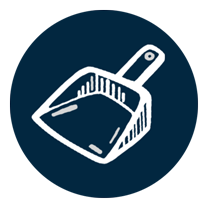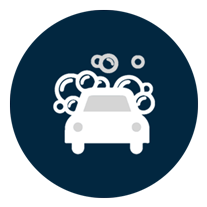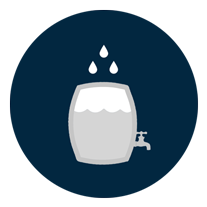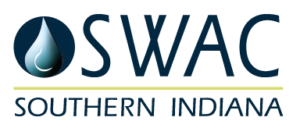Don’t flush your unused medications. Our creeks are polluted. Your fertilizer is killing all the fish.
We’ve heard it all and it’s all a bit much to process. If you have a medicine cabinet bursting with unused medications you don’t know what to do with, or you want to cry every time you look at your dead tomato plants, we have the solutions for you!

- Pick up your Pet’s Poo!
Our furry family members can contribute to poor water quality if we aren’t conscientious about picking up after them. Their waste can contain harmful organisms like e. coli, salmonella, and giardia. Picking up their business ensures those unsafe substances don’t make it into our waterways.
- Take your Ride to the Car Wash
Although you may be an avid DIY-er, put the sponge and bucket down and pull into the Car Wash. The dirty water running down the driveway can hold toxic chemicals that will eventually make it into our lakes, rivers, streams, and oceans. Professional Car Washes are required to drain into sewer systems so the water can be treated.


- Save your Drain the Pain
Your drain isn’t meant for products such as detergents, old medications, grease, oil, fats, paint, or harsh cleaners. Those items contain toxic chemicals that pollute the water system. Instead of dumping them down the drain, throw them in the garbage or find recycling centers that handle those items (e.g., oil recycling centers or drug “take back” programs).
Clean Tip: Nearly all medications (prescription and over-the-counter) can be thrown into your trash can at home. Just be sure remove the label/personal information and mix with undesirable tasting or smelling material before tossing. Check out the Food and Drug Administration’s video about proper disposal of unused medicines.
- Fertilize smart
If you use fertilizer, select a product that does not contain phosphorus, which can leak into nearby groundwater sources after watering or a heavy rainfall. For optimal results , wait for dry weather to apply fertilizer and use organic products that feed the soil and sustain plants. Voila! No more dead tomatoes.

Clean tip: It’s easy to make your own non-hazardous fertilizer right at home! Break out those DIY skills and check out these environmentally friendly fertilizers.

- Use what your Earth Gives You
While taking your car to the car wash and buying organic cleaners and fertilizers may cost you a bit more, using a rain barrel to collect rainwater can save you money on watering your lawn, landscaping, and indoor plants!

